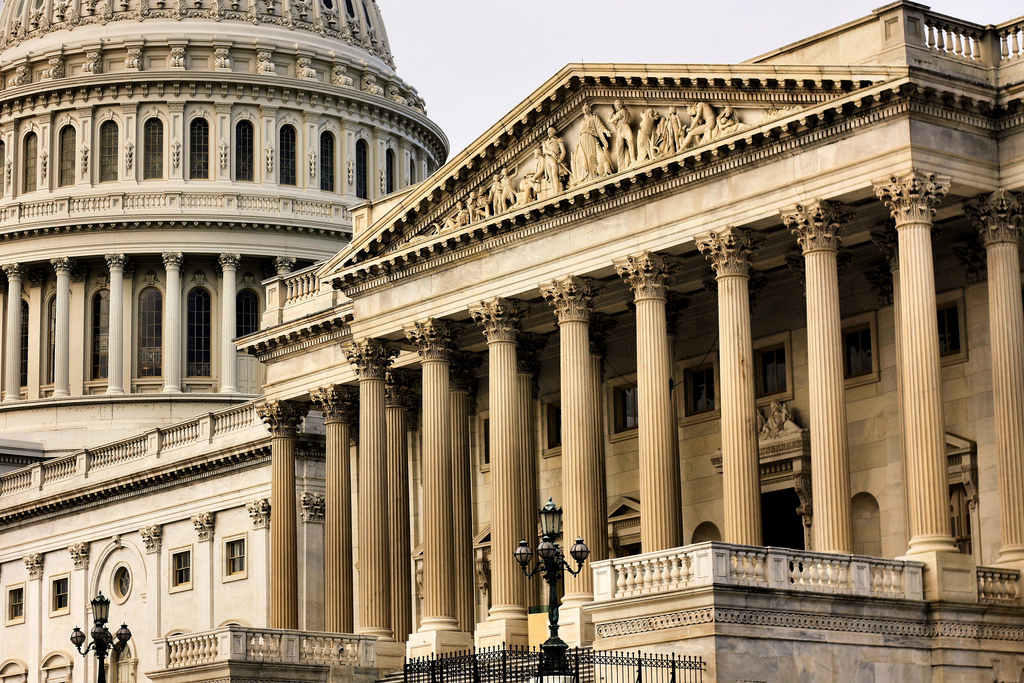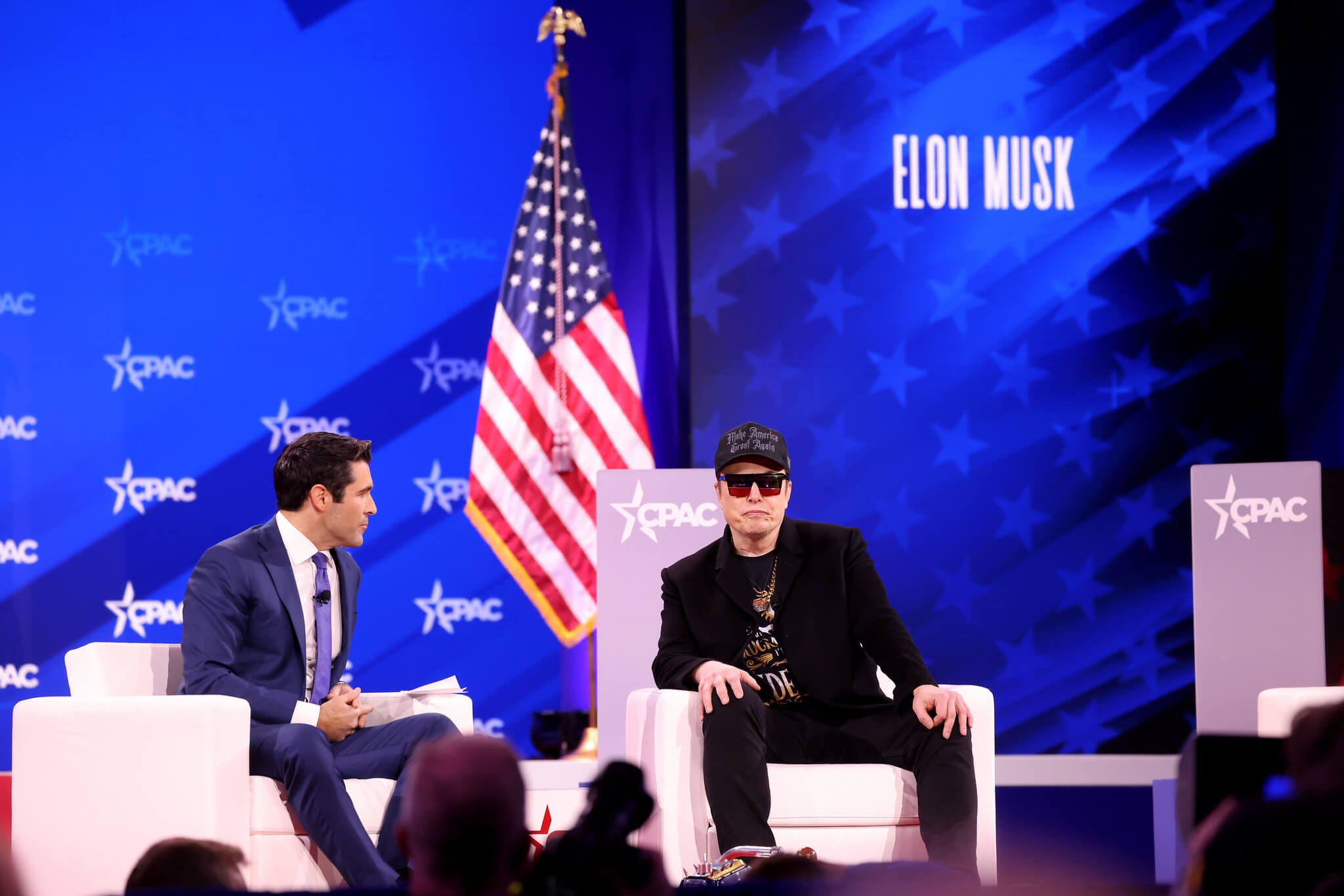What Independent Investigations of the Past Can Teach Congress About Its Role in the Mueller Probe
The new Congress is poised to investigate possible ties between the Trump campaign and Russia, whether Special Counsel Robert Mueller has finished his work or not. This task will be at once unprecedented and familiar. Never before in the history of the republic has Congress investigated credible allegations that the president obtained the highest office in the land by conspiring with a hostile foreign power in violation of federal law.

Published by The Lawfare Institute
in Cooperation With

The new Congress is poised to investigate possible ties between the Trump campaign and Russia, whether Special Counsel Robert Mueller has finished his work or not. This task will be at once unprecedented and familiar. Never before in the history of the republic has Congress investigated credible allegations that the president obtained the highest office in the land by conspiring with a hostile foreign power in violation of federal law. But in the last fifty years, Congress has three times investigated potential criminal activity by a sitting president—investigations that have come to be known as Watergate, Iran-Contra and Whitewater. In each case, Congress’s investigation proceeded parallel to criminal investigations by an independent counsel or special prosecutor. As Protect Democracy has laid out at greater length in a recent white paper, these precedents offer valuable guidance to the new Congress as it intensifies this historic investigation, even as Special Counsel Mueller continues his probe. (Full disclosure: Protect Democracy, the group sponsoring the report, represents Lawfare contributors and editors Benjamin Wittes, Jack Goldsmith, Scott Anderson and Susan Hennessey on a number of separate matters.)
Watergate
The 1972 arrest of five Republican operatives attempting to break in to the Democratic National Committee’s headquarters in the Watergate Hotel resulted in the most consequential special counsel investigation in modern American history. In total, the special prosecutor’s investigation produced 69 indictments, 48 of which resulted in guilty pleas or findings of guilt at trial. But it was President Richard Nixon’s involvement in the illegal activity and its aftermath, leading to his decision to resign from office rather than face imminent impeachment proceedings, that cemented the Watergate investigation’s prominent place in U.S. history.
In retrospect, Congress demonstrated remarkable strategic restraint in its investigation of President Nixon’s conduct in Watergate. In February 1973, after the trial of the Watergate burglars and two accomplices concluded, Congress launched a formal investigation with the creation of the Senate Select Committee on Presidential Campaign Activities. The Committee held its public hearings in May 1973. During the same month, the Attorney General appointed Archibald Cox as the special prosecutor to lead an independent criminal investigation into the Nixon campaign’s activities.
Throughout the summer of 1973, both the Senate Select Committee on Presidential Campaign Activities and Cox sparred with President Nixon over subpoenas relating to taped Oval Office conversations. The U.S. Court of Appeals for the D.C. Circuit ordered President Nixon to produce tapes subpoenaed by Cox on October 12, 1973. President Nixon attempted a compromise, offering to produce the tapes to Senator John Stennis, who would listen to them and summarize their contents for the special prosecutor, and ordered Cox to seek no further litigation on October 19, 1973. The next day, in a press conference, Cox announced he was rejecting President Nixon’s orders. In what became known as the Saturday Night Massacre, President Nixon ordered Cox fired that night. Three days later, amid political uproar over the firing of Cox, President Nixon informed U.S. District Judge John Sirica (who was overseeing the criminal trial for the Watergate break-in) that he would comply with Cox’s grand jury subpoena.
Once the special prosecutor began his work, Congress largely avoided interfering with the criminal investigation. Indeed, in early 1974, Special Prosecutor Leon Jaworski, who had been appointed to replace Cox, asked the Senate Committee to postpone releasing its final report so as not to interfere with prosecutions, and the Committee voluntarily ceased its public proceedings. But when Jaworski determined that he should not indict the president, whom he nonetheless identified in other grand jury indictments as a co-conspirator, Congress actively took up the question of appropriate political accountability. Jaworski transmitted a “Road Map” and supporting evidence to the House, demonstrating that President Nixon had obstructed justice. (Jaworski’s Road Map is now available to the public—and to Mueller’s team—for the first time because of litigation Protect Democracy brought on behalf of Ben Wittes, Jack Goldsmith and Robert Bates.) That evidence was crucial to the House impeachment inquiry and to the House Judiciary Committee’s eventual vote to report articles of impeachment to the full House.
Based on the evidence uncovered during that period by the Special Prosecutor and the Select Committee, the House vote to open an impeachment inquiry was bipartisan and nearly unanimous—the measure passed by a vote of 410-4. As more facts were uncovered in summer 1974, congressional Republicans began to signal their willingness to go against their own party and vote to remove President Nixon from office. And Congressional efforts did not end when President Nixon resigned rather than face impeachment in August 1974. From the beginning, Senate investigators into Watergate had an eye towards legislative reforms to prevent abuses of power by future presidents. The Committee eventually recommended, and Congress passed, several legislative fixes tied directly to the wrongdoing uncovered by Jaworski and the House Judiciary Committee, including Freedom of Information Act reforms, the Right to Financial Privacy Act, the Tax Reform Act and the 1978 Ethics in Government Act.
Iran-Contra
In contrast to Watergate, the Iran-Contra scandal of the late 1980s has somewhat faded from public consciousness. But it, too, married a Congressional inquiry with an independent counsel investigation. The investigation began after media reports exposed two secret U.S. government operations providing illegal aid to Nicaragua’s anti-Sandinista rebels or “Contras.” The operations were coordinated by the National Security Council (NSC) and funded by illegal arms sales to Iran. Within three weeks of each other, a three-judge panel appointed an independent counsel, Lawrence Walsh, to investigate the scandal and Congress established two select committees—one in the House and one in the Senate—dedicated to the matter. (The independent counsel role was itself a legacy of Watergate, created by the 1978 Ethics in Government Act as part of a package of reforms designed to clean up American politics.)
Unlike in Watergate, the Congressional investigators did not hold off on investigative steps to allow the criminal investigation to move forward. Early in the investigation, President Reagan proposed that National Security Advisor John Poindexter and NSC staffer Oliver North be granted immunity for their Congressional testimony. But the independent counsel argued that key witnesses would have “little incentive to testify fully and truthfully before Congress if they received immunity before impeaching or corroborating evidence had been gathered.” Congress nevertheless accepted the president’s suggestion and allowed the men to testify with immunity.
The joint Select Committees’ hearings were a media spectacle. For six days, North freely admitted that he had shredded documents, lied to Congress and falsified records. North testified in his Marine uniform, adorned with many medals, a factor that helped swing public opinion toward the Reagan administration, which framed the arms transactions to Iran and the aid to the Contras as justified aggression to provide a check on communism. Without the advantage of prior private testimony, the Select Committees were ill-equipped to restrict North’s testimony to narrowly responsive answers. The independent counsel’s report did not spare its criticism of the Senate Select Committee in this regard: “The Committee[] publicly and blindly examined a hostile, articulate, immunized witness without the protection and guidance of a significant prior statement.”
A grand jury eventually indicted North, Poindexter and two others for conspiracy to defraud the United States, among other charges. North and Poindexter were eventually tried and convicted. But the convictions did not stick: The D.C. Circuit Court of Appeals vacated both verdicts on the grounds that witnesses’ recollections were improperly influenced by immunized testimony before Congress. Moreover, the immunity granted to Poindexter and North may have impaired the independent counsel’s ability to fully understand the roles played by President Reagan and Vice President George H.W. Bush in authorizing the arms sales. The independent counsel ultimately concluded that “[n]o adverse factor shaped or constricted the Independent Counsel’s criminal investigation more than the congressional immunity grants made to North.”
Whitewater
Whitewater began as an inquiry into Bill and Hillary Clinton’s investment in the Whitewater Development Corporation, an Arkansas land deal, which took place before Bill Clinton became president. But the investigation quickly expanded far beyond Whitewater, including probing the suicide of Deputy White House Counsel Vince Foster, President Clinton’s affair with White House intern Monica Lewinsky, alleged improprieties related to hiring in the White House travel office (“Travelgate”) and the collection of FBI reports regarding prominent Republicans (“Filegate”). By the conclusion of the investigation, fourteen individuals had been convicted, and the Clintons were cleared of any criminal misconduct related to Whitewater business deals, Travelgate and Filegate, and cleared of any involvement in Foster’s death. But President Clinton was impeached by the House and acquitted by the Senate on charges of perjury and obstruction of justice related to his affair with Lewinsky.
The Whitewater investigation began before President Clinton took office and continued throughout 1993 under the auspices of the Department of Justice. In early 1994, however, Attorney General Janet Reno appointed a special prosecutor, Robert Fiske, to conduct an independent investigation. Kenneth Starr later replaced Fiske, and Starr would run the investigation for approximately five years. Congressional investigations into Whitewater and the successive scandals began almost as soon as the independent counsel was appointed and continued throughout independent counsel’s investigation. But the most significant investigation into Whitewater, the Senate Special Committee, reached no bipartisan consensus; the investigating committees issued competing majority and minority reports.
Congress moved towards impeachment after Starr released his September 1998 report detailing President Clinton’s affair with Lewinsky and setting forth 11 possible grounds for the president’s impeachment, including perjury, obstruction of justice, witness tampering and abuse of power. The House voted to launch an impeachment inquiry against President Clinton in October 1998, and approved two articles of impeachment (for perjury and obstruction of justice) along party lines in December. The Senate voted to acquit President Clinton the following year, and he finished out his term in office. Perhaps the only real consensus that emerged was that independent investigations needed to be sharply limited to avoid the problems illustrated by the Starr investigation—namely, that independent investigations might drag on and stray far beyond their original mandates in search of provable wrongdoing. Congress allowed the Ethics in Government Act—the law that provided for independent counsel investigations—to lapse in 1999.
***
As these three historical examples demonstrate, Congress’s role is different from that of a criminal investigator. Congress seeks political accountability, not criminal liability, for wrongdoing, and, unlike prosecutors, Congress has a mandate to inform the public and enact policy reforms. When Congress acts in parallel with a criminal investigation, the criminal investigators’ findings can and should inform Congress’s decisions about the appropriate political consequences and reform proposals. Reviewing these three past investigations, several lessons for today’s Congress become evident:
Congress must be patient. Acting too quickly to impose political consequences can jeopardize both the criminal investigation and the political process. The independent counsel assigned to investigate Iran-Contra concluded that Congress’s hasty hearings jeopardized his criminal prosecutions, including by preventing him (and the American people) from learning the full extent of President Reagan and Vice President Bush’s possible involvement in Iran-Contra.
Some bipartisan buy-in is essential for Congress’s own investigations to gain legitimacy with the public, support accountability and provide a record for reform. The careful pace of the Watergate inquiry allowed bipartisan support to coalesce, first around the need for a full investigation and eventually around President Nixon’s removal from office. The Whitewater investigation, in contrast, was politicized from the beginning and never achieved bipartisan consensus around appropriate accountability measures.
Congressional investigations create an opportunity for long-term reform, not just short-term accountability measures. As they did after Watergate, Congress should devote attention to fixing the systemic issues that the investigation has exposed. And we believe those systemic issues are legion: an inadequate campaign finance system, misleading political ads, vulnerable election infrastructure and insufficient protections against White House interference with the Department of Justice and intelligence.
Congress can, and should, begin work on these problems even before the investigation into election interference is complete. Protect Democracy released a Roadmap for Renewal to lay the groundwork for a reform agenda. This Roadmap argues, for instance, that Congress should restrict White House contacts with the Department of Justice, just as the post-Watergate Congress restricted White House contacts with the Internal Revenue Service. It also advocates that Congress tighten the rules under which the president can appoint temporary leadership for federal agencies, since it appears that President Trump has abused existing rules to position a loyalist at the top of the Justice Department with the ability to influence or impede Special Counsel Mueller’s investigation. Additionally, the report recommends that Congress act to protect U.S. elections by funding secure election machinery; tightening campaign finance administration; and taking steps to combat misinformation online, for instance, by passing the Honest Ads Act to require disclosure of sponsors of online political ads.
The House Intelligence Committee also must make its own oversight more effective. In the 115th Congress, the majority colluded with the White House to attack the Intelligence Community and the Special Counsel. Going forward, Congress will need to take the lead in rebuilding its relationship with the Intelligence Community to ensure continued, robust oversight of intelligence activities. The House should consider implementing recommendations of the 9/11 Commission, as previously discussed on Lawfare by Molly Reynolds and Carrie Cordero, to improve intelligence oversight by adopting a Joint Committee structure; ensuring the committee staff is nonpartisan; reducing the membership on the committees; and ending term limits for intelligence committee members, which sap the committees of needed expertise on complex intelligence issues.
This is not the first, and will not be the last, time that Congress is called upon to ensure appropriate political accountability for executive-branch wrongdoing and enact reforms to prevent its repetition. Fortunately, while the allegations of election interference are unprecedented, history offers valuable lessons for Congress with respect to how its response should take shape. These lessons could help Congress fulfill its constitutional duties to oversee and, when appropriate, check the executive branch, while also allowing criminal investigations to run their course. As the history of these investigations shows, an investigation into the president need not end in a constitutional crisis, and can, in fact, be an opportunity to strengthen our democratic infrastructure.






